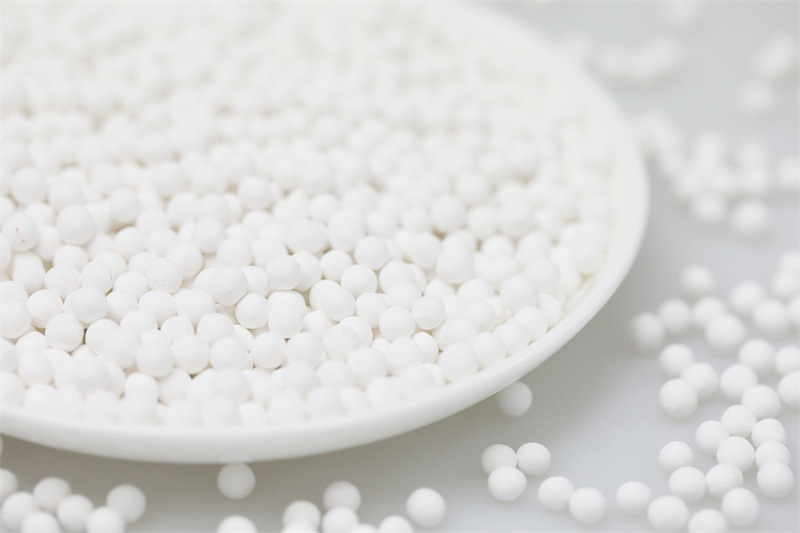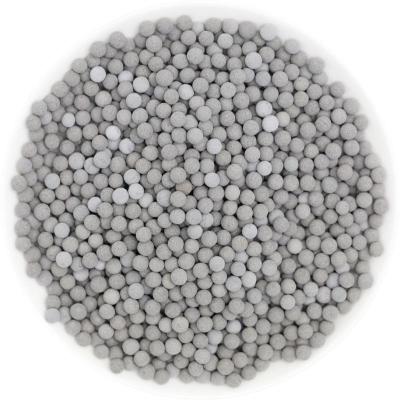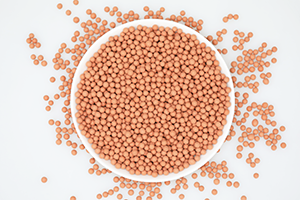Chlorine Reduction Ceramic Balls
Chlorine Reduction Ceramic Balls
--99% food grade Calcium Sulfite, CaSO3
--remove 99.9% chlorine
--remove chlorine in 0.2 seconds
--dust free
--odor smell fre
--never split apart in water
Calcium sulfite is a food grade compound commonly used in water treatment as an effective method for chlorine removal. The principle behind calcium sulfite's ability to remove chlorine from water is based on a redox (reduction-oxidation) reaction.
Here's a breakdown of the principle of calcium sulfite removing chlorine in water:
Chlorine exists in water as a dissolved gas, typically in the form of hypochlorous acid (HOCl) or hypochlorite ions (OCl-). Calcium sulfite (CaSO3) is a strong reducing agent, which means it has the ability to donate electrons to other substances.
When calcium sulfite comes into contact with chlorine in water, it undergoes a redox reaction. The sulfite ions in calcium sulfite (SO3^2-) act as electron donors and react with chlorine, causing a reduction reaction. This results in the conversion of chlorine to chloride ions (Cl-), effectively removing the chlorine from the water.
As a result of the redox reaction, calcium sulfite is oxidized to calcium ions (Ca^2+) and sulfate ions (SO4^2-). These byproducts are generally harmless and do not negatively impact water quality.
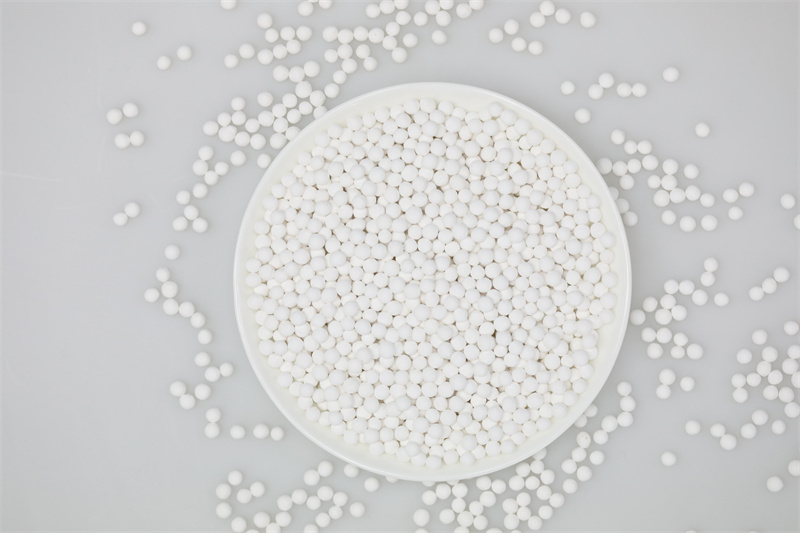
Features:
--Excellent efficiency in removing residual chlorine in the tap water
--Demiss bad smell, odor taste, harmful impurities, and micro-organic.
--Food grade CaSO3, safe for drinking water treatment.
--Professional Manufacture of bio-ceramic balls for 30 years
Parameters:
Size | 1mm-10mm, customized | CaSO3 Percentage | >=95% |
Appearance | White Color Spherical Balls | CaSO3 Dissolution | 0.02mg/L |
Specific Area (m2/g) | >5000 | Specific Density (g/m3) | >1.3~1.55 |
Bulk Density (g/m3) | 0.74-0.78 | Density (g/cm3) | 1.35~1.4 |
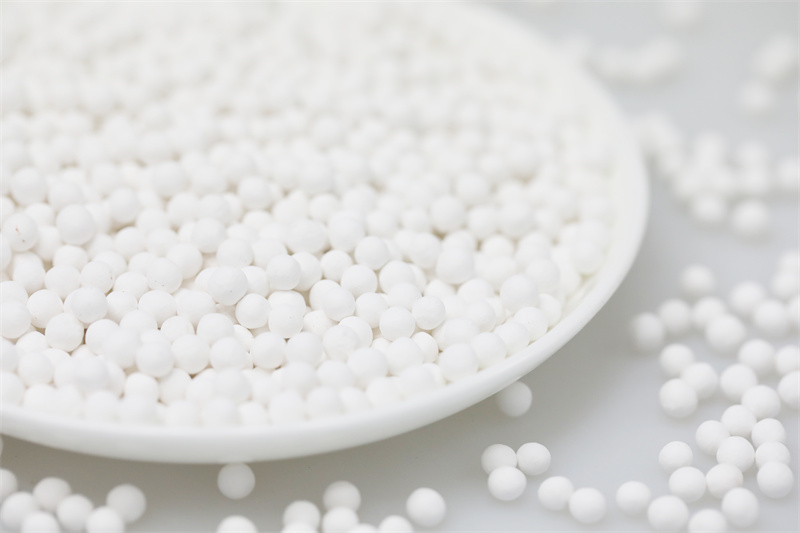
Test Data:
CaSO3 Dissloved (mg/L) | 0.02 | Adding 5g CaSO3 Ball into 400ml tap water (free chlorine 1ppm)% | >=96% |
CaSO3 Percentage | >=80% | Adding 8g CaSO3 Ball into 400ml tap water (free chlorine 1ppm)% | >=97% |
Bulk Porosity Rate | >=39% | Adding 10g CaSO3 Ball into 400ml tap water (free chlorine 1ppm) % | >=98% |
Specific Area (cm2/g) | >0.5*104 | Adding 15g CaSO3 Ball into 400ml tap water (free chlorine 1ppm) % | 100% |
